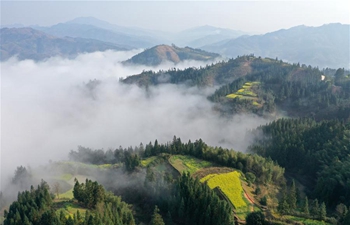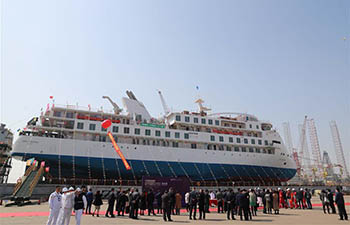GABORONE, March 15 (Xinhua) -- The United Nations Development Programme (UNDP) has offered about 467,000 U.S. dollars in aid to develope Botswana's northwestern district of Ngamiland with rich biodiversity.
Addressing a full council meeting on Thursday, Ngamiland District Council Chairperson Duncan Enga said the program has already funded four projects.
The program will further involve local communities in conserving and managing Okavango Delta, a world heritage comprising permanent marshlands and seasonally flooded plains, and meanwhile provide opportunities for the communities to derive benefits from the site.
In an effort to improve food security in Ngamiland, the Ministry of Agricultural Development and Food Security, together with Okavango River Basin Water Commission (OKACOM), has selected 20 demonstration farmers, said Enga.
The farmers will join projects on horticultural products with high earnings quality. To help them, Enga said, a horticulture specialist had been recruited as the mentor.
Enga added that the success of the initiative will go a long way in diversifying the district's economy by ensuring that business people take part in the value chain of the tourism sector.
OKACOM is an agreement among the governments of Angola, Botswana, and Namibia on the establishment of a permanent international Okavango River water governance. It was signed in the Namibian capital Windhoek in September 1994 and immediately entered into force.
Enga appreciated the good partnership between the district and the UNDP through Sustainable Land Management, which is coming to an end this year.
The 5-year partnership started in 2014 and, through it, the district managed to carry out three pilot projects on Hainaveld range management, bush encroachment in Lake Ngami and land management for Tsodilo Enclave area.
In the landlocked southern African country, key economic sectors such as tourism, mining and agriculture are resource-dependent, and the livelihoods of the majority, especially in rural areas, are largely derived from natural resources, the availability and productivity of which is heavily influenced by climatic conditions, according to the UNDP.

















